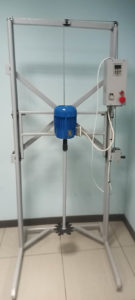A diverse range of compounds are used as polyols for alkyd resins (see Figure 2.10). Polyols used in alkyds are generally at least trifunctional to permit branching and can provide the alkyd with hydroxyl groups for further reaction. Glycerol, having two primary and one secondary hydroxyl, is the traditional polyol used in alkyds; however, it is generally limited to use in short and medium oil, oxidatively and thermally curing alkyd resins. Other important triols used to replace glycerol are trimethylol propane and trimethylol ethane, which have three equally reactive hydroxyl groups that produce alkyds with more branching and low viscosity, suitable for high-solid applications, along with better solubility in non-polar
|
|
solvents, improved exterior durability and water resistance. Penta- erythritol, with four primary hydroxyl groups, is the most common polyol for long oil and medium/long oil alkyd resins; however, their use as the sole polyol in short to medium oil alkyds is prone to gelation due to its high functionality. Long oil alkyd resins from pentae — rythritol have superior adhesion, hardness, gloss retention, weather resistance, water resistance and chemical resistance properties. Diols such as ethylene glycol, propylene glycol, 1,3-propanediol, 1,4-butanediol and neopentyl glycol are not commonly used as the main polyols, but they may be used as a modifier or to balance the average functionality of the mixture.
 2 сентября, 2015
2 сентября, 2015  Pokraskin
Pokraskin 
 Опубликовано в рубрике
Опубликовано в рубрике 